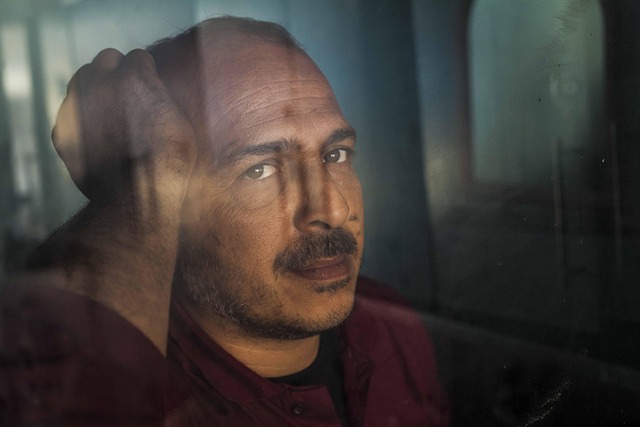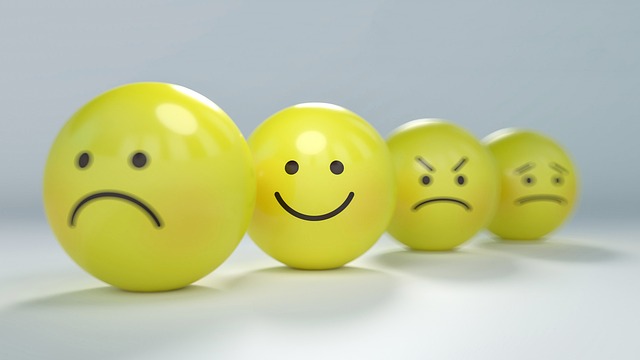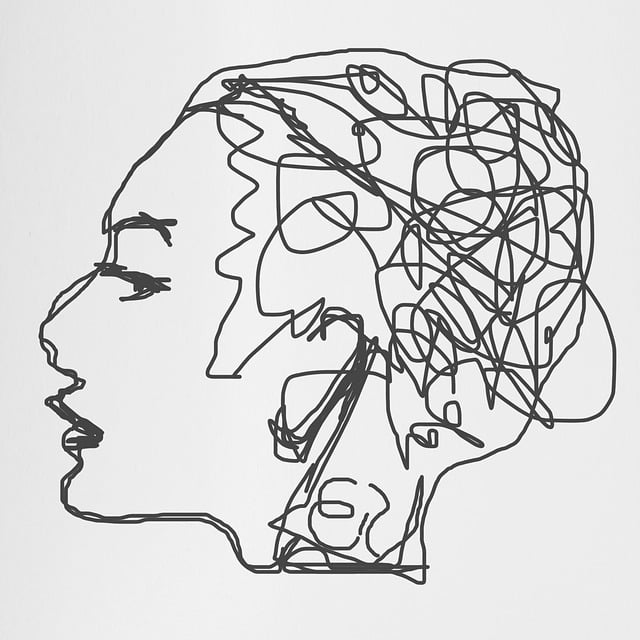Holistic therapy for anxiety offers a multi-faceted approach addressing mind, body, and spirit as interconnected entities. Techniques such as meditation, yoga, aromatherapy, nutritional counseling, and exercise disrupt the cycle of stress-induced physical reactions that fuel anxious thoughts. This method provides effective and lasting anxiety treatment by improving overall well-being through mindfulness practices and lifestyle adjustments. Key practices include regular exercise, dietary changes, and ancient techniques like acupuncture, all aimed at reducing symptoms and fostering emotional resilience.
Looking for effective anxiety treatment? Holistic therapy offers a natural approach to calming the mind and body. This article delves into various holistic practices designed to alleviate anxiety, focusing on the interconnectedness of mental, physical, and emotional well-being.
From understanding the mind-body connection to exploring natural remedies, yoga, nutrition, and outdoor activities, you’ll discover a comprehensive guide to managing anxiety holistically. Learn about different therapy types, benefits of meditation and acupuncture, and how to create a personalized plan for lasting relief.
Understanding Holistic Therapy: An Approach to Anxiety Relief

Holistic therapy for anxiety offers a unique and comprehensive approach to alleviating mental health concerns by addressing the whole individual—mind, body, and spirit. Unlike traditional therapeutic methods that often focus solely on symptoms, holistic therapy recognizes that anxiety arises from various interconnected factors. By understanding these underlying causes, which can include stress, environmental influences, and emotional patterns, therapists can tailor treatments to support overall well-being.
This approach incorporates diverse techniques such as meditation, yoga, aromatherapy, and nutritional counseling alongside conventional talk therapy. For instance, mindfulness practices help individuals manage anxiety by training the mind to stay present and grounded. Meanwhile, lifestyle adjustments like regular exercise and a balanced diet aim to improve physical health, which can significantly impact mental state. Holistic therapy thus provides a nurturing environment for individuals seeking effective and lasting anxiety treatment.
The Mind-Body Connection: How It Impacts Anxiety Disorders

The mind-body connection is a crucial aspect when considering holistic therapy for anxiety disorders. Anxiety, a common mental health concern, often manifests physically as well as mentally and emotionally. This interconnectedness between mind and body means that addressing only one aspect may not be sufficient for effective anxiety treatment. When an individual experiences stress or anxiety, their bodies respond by triggering physiological reactions, such as increased heart rate, heightened senses, and muscle tension. Over time, these physical symptoms can become intertwined with one’s thoughts and feelings, creating a cycle that reinforces anxiety.
Holistic therapy recognizes this mind-body connection and aims to disrupt this cycle through various techniques. By focusing on the whole person—mind, body, and spirit— therapists can help individuals manage anxiety more effectively. This may involve stress management techniques, mindfulness practices, physical exercise, relaxation strategies, or even dietary changes designed to support mental well-being. Understanding and addressing these underlying physical responses can be a powerful tool in anxiety treatment, enabling individuals to regain a sense of control over their lives.
Natural Remedies and Lifestyle Changes for Better Mental Wellbeing

Anxiety treatment often extends beyond traditional therapy and medication, encompassing a holistic approach that integrates natural remedies and lifestyle changes. Incorporating practices such as regular exercise, mindfulness meditation, and deep breathing exercises can significantly reduce anxiety symptoms. These activities promote the release of endorphins, our body’s natural mood elevators, while also calming the nervous system.
Additionally, dietary adjustments play a crucial role in mental wellbeing. A balanced diet rich in vitamins, minerals, and omega-3 fatty acids can positively impact brain health and overall mood regulation. Meanwhile, practices like yoga combine physical movement with mindfulness, providing a powerful tool to manage anxiety through relaxation techniques and improved body awareness. By adopting these natural remedies and lifestyle changes, individuals can enhance their anxiety treatment journey and cultivate a deeper sense of calm.
Exploring Different Types of Holistic Therapy Practices

Holistic therapy for anxiety offers a wide array of practices aimed at addressing the mind, body, and spirit as interconnected entities. These therapies recognize that anxiety often stems from various sources, including stress, lifestyle factors, emotional traumas, and physical health issues. Therefore, they take a multi-faceted approach to treatment, involving techniques such as mindfulness meditation, yoga, acupuncture, herbal remedies, and energy healing.
Each holistic therapy practice has its unique benefits for anxiety treatment. Mindfulness meditation helps individuals focus on the present moment, reducing rumination on past or future events that can trigger anxiety. Yoga combines physical postures with breathing exercises to promote relaxation and stress reduction. Acupuncture involves inserting thin needles at specific points in the body to stimulate energy flow, potentially alleviating symptoms of anxiety. Herbal remedies, like Valerian root or lavender, are known for their calming effects, while energy healing techniques, such as reiki, aim to restore balance in an individual’s energetic field, contributing to overall well-being and reduced anxiety levels.
Benefits of Meditation and Yoga in Managing Anxiety Symptoms

Meditation and yoga have emerged as powerful tools in the holistic therapy arsenal for managing anxiety symptoms. These ancient practices, deeply rooted in mindfulness, offer a calming effect on both the mind and body, which is particularly beneficial for those struggling with anxiety disorders. Regular meditation practice encourages individuals to focus on the present moment, thereby quieting the racing thoughts and mental chatter often associated with anxiety. By observing one’s thoughts without judgment, practitioners learn to detach from anxious thoughts, fostering a sense of inner peace and emotional regulation.
Yoga, with its emphasis on breath control (pranayama) and physical postures (asanas), provides a holistic approach to anxiety treatment. The slow, deliberate movements of yoga help to relax the body, reducing muscle tension and promoting a state of tranquility. Additionally, the meditative aspects of certain yoga styles allow individuals to cultivate mindfulness and self-awareness, enabling them to better understand their anxiety triggers and develop healthier coping mechanisms.
Nutrition's Role: Diet and Anxiety Management

Nutrition plays a significant role in managing anxiety, an often-overlooked aspect of holistic therapy. A well-balanced diet can positively impact mental health by providing essential nutrients that support brain function and reduce inflammation. Studies show that certain foods can help alleviate anxiety symptoms while others may exacerbate them. Incorporating anti-anxiety foods like leafy greens, berries, and healthy fats into your diet can promote a sense of calm. These foods are rich in vitamins and minerals that aid in stress reduction and overall emotional well-being.
On the contrary, processed foods high in sugar and unhealthy fats can trigger mood swings and increase anxiety levels. By adopting an anxiety-reducing diet, individuals can better manage their symptoms and improve their overall quality of life. This dietary approach is a powerful tool in holistic therapy, offering a natural way to complement traditional anxiety treatment methods.
Incorporating Nature and Outdoor Activities for Stress Reduction

Incorporating nature into your routine can be a powerful tool in the fight against anxiety. Spending time outdoors, whether it’s a walk in the park, hiking in the woods, or simply sitting in your backyard, allows you to disconnect from stressful thoughts and engage with the calming environment around you. Research has shown that exposure to natural settings reduces stress hormones, improves mood, and enhances overall well-being, making it an effective component of anxiety treatment.
Outdoor activities like gardening, yoga in a green space, or even sitting near a body of water can provide a sense of tranquility and perspective. These experiences often encourage mindfulness—the practice of focusing on the present moment without judgment. By cultivating awareness of your surroundings, you may find it easier to manage anxious thoughts as they arise. This holistic approach to anxiety treatment not only addresses the symptoms but also promotes long-term mental resilience by fostering a deeper connection with the natural world.
Acupuncture and Other Alternative Medical Treatments for Anxiety

Acupuncture, an ancient Chinese practice, has gained recognition as a valuable tool in the holistic therapy realm for anxiety treatment. This alternative medical treatment involves inserting thin needles into specific points on the body to stimulate energy flow and promote relaxation. Research suggests that acupuncture can effectively reduce symptoms of anxiety by influencing certain brain regions and neurotransmitters associated with stress response. Many practitioners combine acupuncture with other alternative treatments for enhanced anxiety relief, such as herbal remedies, mindfulness techniques, and yoga.
These holistic approaches offer a non-pharmacological way to manage anxiety, addressing the root causes rather than just masking symptoms. By combining ancient wisdom with modern understanding of the mind-body connection, alternative medical treatments provide a nurturing environment for individuals seeking long-term relief from anxiety disorders.
Creating a Comprehensive Holistic Plan for Long-Term Anxiety Control

Creating a comprehensive holistic plan is essential for long-term anxiety control. This approach goes beyond traditional therapy methods by integrating various aspects of an individual’s life, including physical health, mental well-being, and emotional resilience. A holistic therapist might recommend combining techniques such as mindfulness meditation, yoga, nutritional counseling, and stress management strategies to address the root causes of anxiety. By taking a multifaceted approach, individuals can develop sustainable coping mechanisms that extend beyond temporary relief.
Such a plan involves tailoring treatments to fit the unique needs of each person. This personalization ensures that the chosen methods resonate deeply with the individual, fostering a sense of empowerment and self-awareness. Regular check-ins with a holistic therapist allow for continuous adjustment and refinement of the treatment plan, ensuring its effectiveness over time. Ultimately, this holistic approach aims to equip individuals with tools to manage anxiety effectively, leading to improved quality of life.
